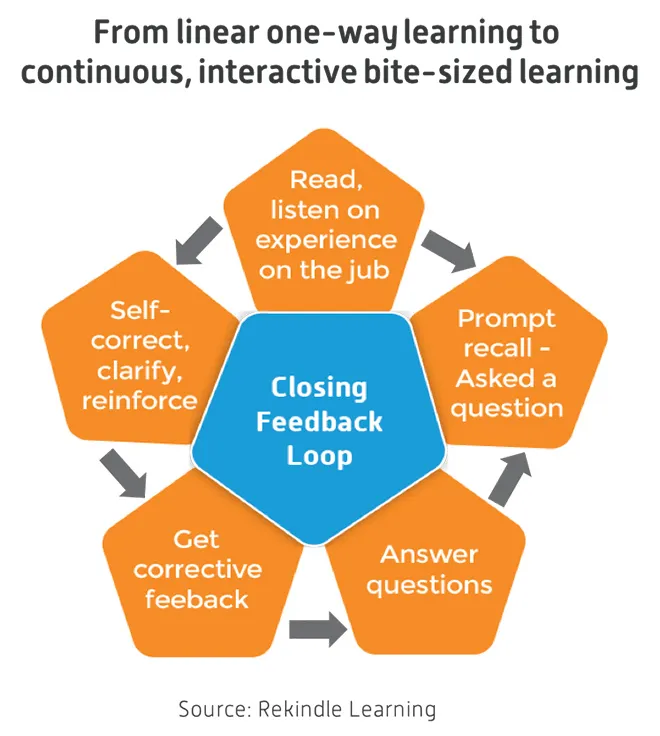-
CENTRES
Progammes & Centres
Location
One thing is for sure, the future of work is digital.

This article is part of the series — Africa in 2021.
The COVID-19 pandemic has devastated the livelihoods of many South Africans and as has happened time and time again in times of economic strain, the poor and unskilled suffer the most. The number of unemployed South Africans rose by 2.2 million to 6.5 million people altogether, between the second and third quarters of 2020. With the economy slipping deeper into recession, 2021 will be another difficult year. How must the world of work change to raise productivity and keep people economically active? For the unemployed, is there a future of work, without work?
To adequately address this matter, it is important to start by framing the future of work as a dynamic that goes beyond the automation of simple tasks and remote working. At a fundamental level, the future of work is about how societies optimally leverage their human capital to do the work of delivering goods and services that create value. This involves determining the tasks to be done of wide-ranging complexity, matching human capability to the tasks that require human capability, matching when the task is done with available capacity, and deciding how and where the tasks get done. The future of work will spur significant innovation to support the range of end-to-end activities required.
The primary trends I expect to see in 2021 as South Africa seeks to adapt and cope are:
• Re-organisation of how we work to fully maximise the benefits of cloud-based productivity and collaboration tools.
• Uberisation of more services expanding the reach of the gig economy.
• Large-scale use of just-in-time, just-in-context, bite-sized learning on the go.
• Greater adoption of virtual reality and augmented reality for experiential and practical training for artisans and professionals and real-time performance support.
While South African professionals have had access to the latest cloud collaboration and productivity tools for communications, workflow management, knowledge sharing and the like for decades already; it is only in 2020, the year of COVID-19, that we saw a dramatic adoption of such Software as a Service (SaaS) tools even by technophobes. Zoom jumped from 148th position to become the most popular app within a few days at the onset of lockdown regulations. Now that these tools are embedded, professionals should, in 2021, grow from novice usage, to more integrated, productivity-enhancing usage patterns that are non-negotiable to transform into data-driven organisations. 2021 is the best year to hope that documents will no longer reside on individual’s devices; that calculations will no longer be done manually on spreadsheets; and that email will cease to be used as a disastrous combination of internal and external communication, project and progress tracking, document sharing, information storage and appointment setting, amongst others. COVID-19 has finally proven that most workers in the services sector really don’t need to drive to a building every single day to work, which should certainly speed up this re-organisation.
With formal sector employment trends indicating a downward shift across the spectrum from highly skilled to semi-skilled workers, the gig economy will start to seem like the standard way of work. It was estimated that, before the impact of COVID-19, the gig economy directly touched one percent of the South African population and indirectly half a million people, with expectations of 10 percent growth a year. In the semi-skilled market, SweepSouth has proven the case for the uberisation of domestic services, having celebrated 1 million bookings and work opportunities provided to domestic workers in South Africa. SweepSouth pushes aside outdated views that the digital economy is inaccessible to the marginalised communities, as they have been able to provide dignified work at decent pay to many South African women. While there are, no doubt, concerns about worker’s rights and work conditions for gig-workers — who often work without adequate health insurance or leave options — this trend will expand into other industries, from more home services, to retail stores and customer service agents for example. The gig economy is key to keeping more people economically active as cost pressures increase. This trend will directly address the aspects of the future of work related to the matching of tasks to human capability and availability. McKinsey estimates that 63 million African people across the continent are self-employed.
South Africa’s greatest challenge by far and away is the skills gap that negatively impacts our ability to match tasks to human capability. The country only produces 77,000 high school graduates that pass higher grade mathematics a year and over 90 percent of unemployed people are semi-skilled or low-skilled, showing the strong link between skills and employment. Instead of seeing the fourth industrial revolution as a threat, it will be crucial here to use digital technologies to close the skills gap. Changes in technology, ways of work, business models and industry regulations have, from our experience at Rekindle Learning, generated a tremendous demand for continuous learning and development. Yet many organisations are still sending out emails with long memos hoping people will read them. Or herding people into one room or webinar for workshops and hoping they listen. Or forcing people to flick through dozens of slides with a quick quiz at the end and hoping something sticks. Tick-box training has no place in the future world of work — there is only space for high-impact digital learning experiences that deliver measurable business results. Employee experience and micro-learning platforms in the form of short videos, contextual interactive content, chats and personalised messaging, rapid two-way surveys and feedback, and real-time reporting are an essential part of enabling continuous learning integrated with work.

The upskilling conversation also has to expand beyond the knowledge-transfer mode of learning, and tackle experiential learning using mixed-reality technologies that can more effectively train for complex tasks and/or train people with weak educational backgrounds for whom, an academic approach to learning is onerous. Jendamark is one of the pioneers in manufacturing using augmented reality glasses to provide real-time performance support to machine operators through which they can view instructions and guidance as they work. Their virtual reality training means their operators are able to reach peak performance in a much shorter space of time.
Harvard Business Review has framed the impact of COVID-19 as the ‘most significant social experiment of the future of work in action, with work from home and social distancing policies radically changing the way we work and interact.’ The experiment continues into 2021, and thanks to local technology players in the future world of work, South Africa is able to drive its own version to meet contextual demands. One thing is for sure, the future of work is digital.
The views expressed above belong to the author(s). ORF research and analyses now available on Telegram! Click here to access our curated content — blogs, longforms and interviews.

Rapelang Rabana is a technology entrepreneur. She has 15 years experience in building innovative technologies. Rapelang is the founder of Rekindle Learning and Rekindle Digital ...
Read More +